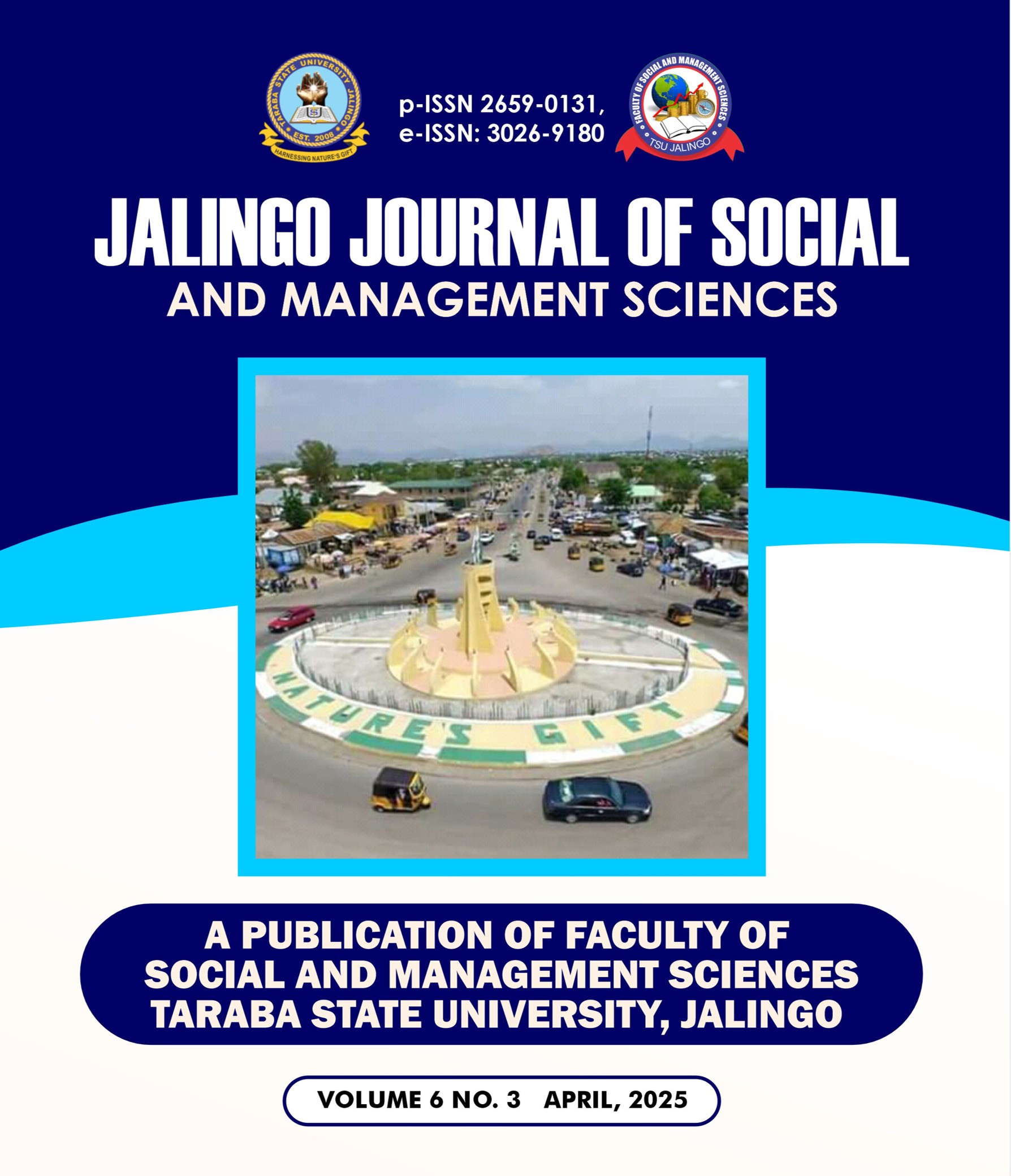Small Arms and Light Weapons Proliferation and Socioeconomic Recovery and Community Resilience in Post-Lockdown Taraba State, Nigeria
Keywords:
Small Arms and Light Weapons (SALW), Socioeconomic Recovery, Community Resilience, Post-Lockdown, Taraba State, NigeriaAbstract
This study investigates the impact of SALW proliferation socioeconomic activities and community resilience, focusing on the period of COVID-19 lockdown in Taraba State, Nigeria. The study adopted a qualitative research design. Purposive sampling technique was used to select the study areas. The Failed State theory is the fundamental underpinning of the study. Findings revealed that the availability of SALW has exacerbated armed banditry, communal clashes, and herder-farmer conflicts, leading to displacement, reduced agricultural activities, and a sharp decline in economic output. It was further revealed that porous borders, inadequate enforcement of arms control laws, and socioeconomic deprivation are factors driving SALW proliferation. The study also found that the proliferation of arms undermines community resilience by weakening local conflict resolution mechanisms and fostering a culture of impunity. Despite these challenges, community-based initiatives, such as vigilante groups and peacebuilding efforts, have shown some potentials in mitigating violence and fostering recovery. The study recommends implementing robust, integrated strategies such as disarmament programs, poverty alleviation initiatives, and strengthened border enforcement. Additionally, empowering local conflict resolution mechanisms, promoting social cohesion, and addressing governance deficits are essential steps to break the cycle of SALW proliferation and foster sustainable recovery.

Downloads
Published
Issue
Section
License
Copyright (c) 2025 JALINGO JOURNAL OF SOCIAL AND MANAGEMENT SCIENCES

This work is licensed under a Creative Commons Attribution-NonCommercial 4.0 International License.
